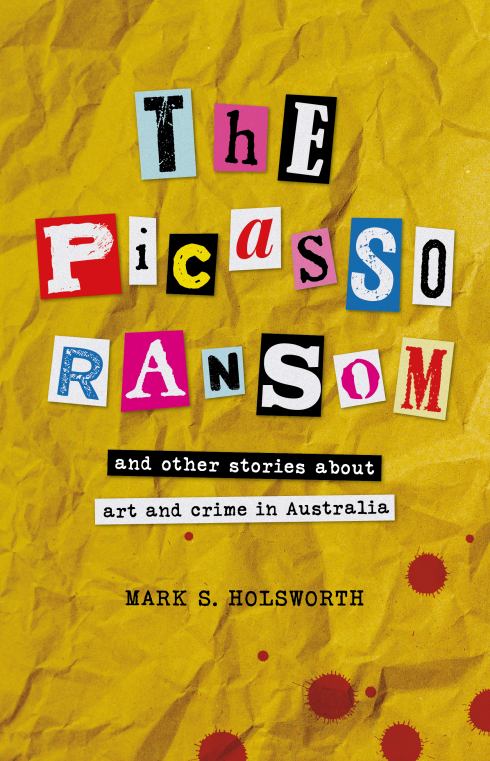Sitting upstairs at Coco Black enjoying a cup of hot chocolate and looking out the half-circle, one-way mirrored window out to the Royal Arcade. Watching the shoppers, the group of cub scouts and the tour group. Walking tours are now a common sight in Melbourne, this one is lead by a guide with a stereotypical red umbrella, not that there weren’t walking tours of Melbourne in the nineteenth century.
At the base of the display windows in Royal Arcade the shop signs, like that of The Games Shop, are still hand painted in keeping with the late nineteenth century design of the arcade. I think about how many sign painters are still working in Melbourne.
Time warp back to Marvellous Melbourne, through Royal Arcade and its sister, the Block Arcade, to the invention of shopping as a social experience in the nineteenth century. So much of life as we know it; a home in the suburbs, ‘childhood’, ‘domestic bliss’ and ‘the standard of living’ are nineteenth century inventions.
The Victorian legacy haunts the state of Victoria. Each generation after has created their own version of this time as they live in the houses on networks of roads that were all built in the late nineteenth century. We can’t avoid it, we have inherited a built environment like we have inherited our genes. The Victorian legacy also defines the Australian constitution and other aspects of the nomesphere, the legal construction of geography.
Not only geography but our psychology and taste are still effected by the Victorians. The next generations, the moderns, turned their back’s on their parent’s tastes, even though they had been brought up in a nineteenth century manner. For the baby boomers this meant the joyous rediscovery of all the decorative excess of their grandparent’s generation that were now readily available as heirlooms or filling second hand dealers. Nineteenth century design became part of the psychedelic aesthetic. The spiritualism of the late nineteenth century was also revived as the new age. For the Gen X, with no living connection to their nineteenth century ancestors, they are free to invent their own interpretation, steam-punk. In much the same way, and about as accurately, as the Victorians has re-invented King Arthur, Vikings and the Druids. We continue to try to live with and adapt the legacies of the late nineteenth century.
Also remembering the connections between modern art and modern shopping; Walter Benjamin on shop window displays. Almost every time I go past Aesop I have to remind myself that I’m not passing a contemporary art gallery but an up-market cosmetics shop. Their display is so elegant and minimalist. What is the difference between a shop window display and an art installation? I was not surprised when I read that there was a performance art piece at Aesop during the Melbourne Art Fair 2014.
I’ve been thinking a lot about the legacy of the Victorian era on Melbourne’s culture. There are so many aspects from the architecture and design of Melbourne and my own suburb of Coburg, to the current revival of the popularity of board games. I should think, research and post some more on this subject.
(For more about the Gog and Magog clock in Royal Arcade see my post on Melbourne’s novelty clocks.)




February 6th, 2015 at 11:42 AM
When my Mum first arrived in Australia, she went to Quist’s coffee shop which was very close to where you are describing. She wanted to know if they spoke Danish like she did—alas, no! Perhaps five years ago, Quist’s moved to Lt Collins St, and had removed all their Danish imagery completely. For what it’s worth, Mum pronounces it QVist’s. Like you, Mark, she used to enjoy sitting with a coffee and, as she called it, “watched the world go by”.
February 6th, 2015 at 12:02 PM
Thanks for the memories. I’m still practicing at sitting and watching the world go by to balance out all the walking and exploring the city.
February 6th, 2015 at 4:53 PM
Another of Melbourne’s arcades is Cathedral Arcade, connecting Swanston Street to Flinders Lane. Although this arcade is now not nearly as glamorous as the others, the stained glass, leadlights, ceramic tiles, and wood panels are still in quite good nick.
I wonder what went wrong with Cathedral Arcade?
February 6th, 2015 at 5:30 PM
Hi artandarchitecturemainly, which streets perpendicular to Swanston St & Flinders Lane is Cathedral Arcade between?
February 6th, 2015 at 10:28 PM
Cathedral Arcade is a smaller and a bit later but it as been rediscovered by the fashion world and there are a few boutiques in it. It is probably the most attractive interwar period arcade in Melbourne but that doesn’t match the ambitions of the late-Victorian Royal and Block Arcades.
February 6th, 2015 at 10:30 PM
James, Cathedral Arcade is in the Nicholas Building, it runs off Swanston St. and goes around the corner and into Flinders Lane. Lots of artists have studios on the upper floors of the Nicholas Building.
February 8th, 2015 at 3:21 PM
Ah! Got it! Thx Mark. Been there many times, just didn’t know the name. An artist I used to know, Chris Read (Grovercon), used to live (yes, live!) in that building. Miss him terribly if anyone has his details…
I’ve really got to join one of your tours one of these days, Mark, then I wouldn’t be asking such simple geography questions!
July 2nd, 2019 at 4:46 PM
[…] more of my thoughts about Victorian Melbourne read my posts: Time Warp to Victoria and Melbourne’s Gothic […]